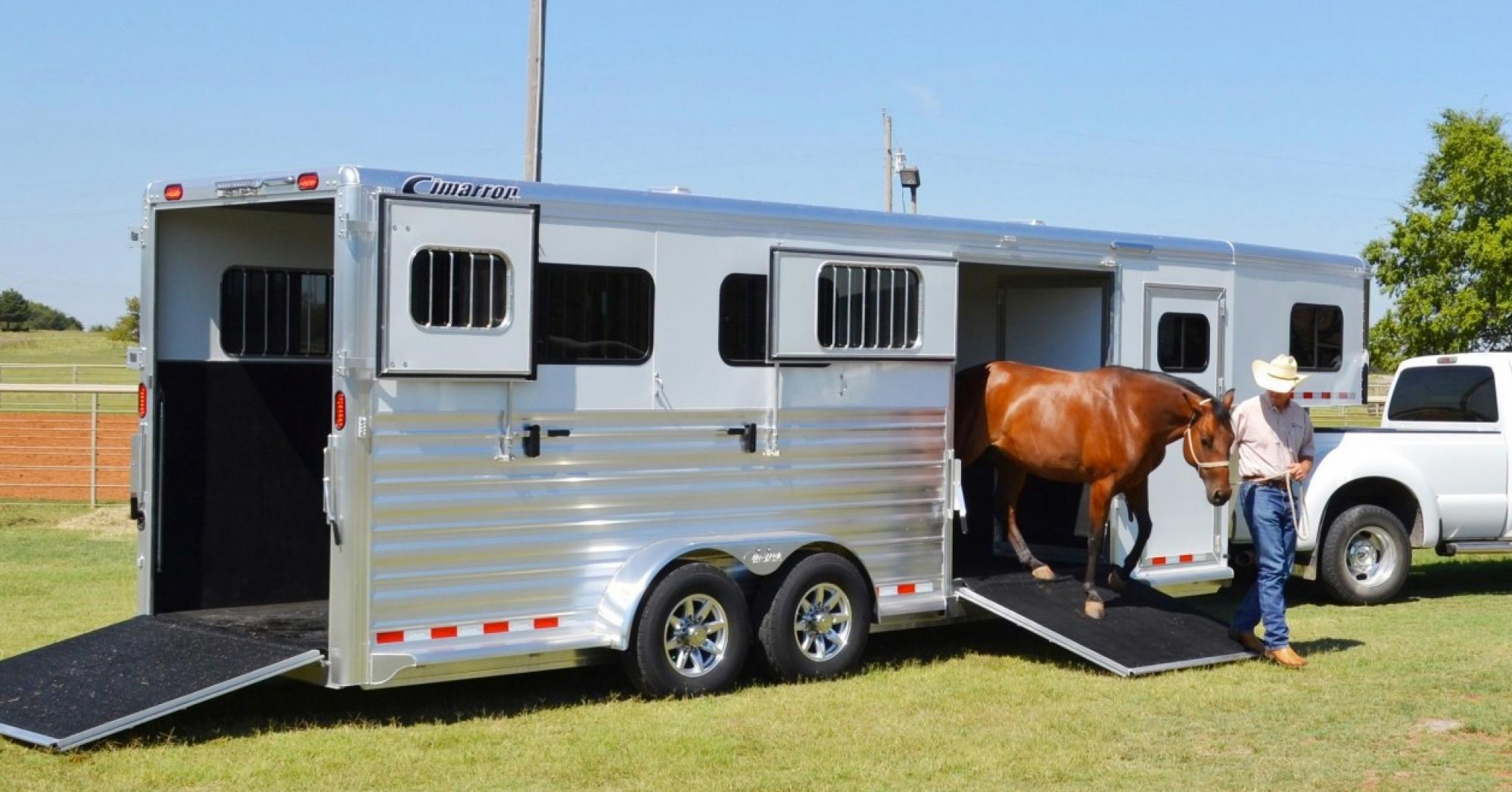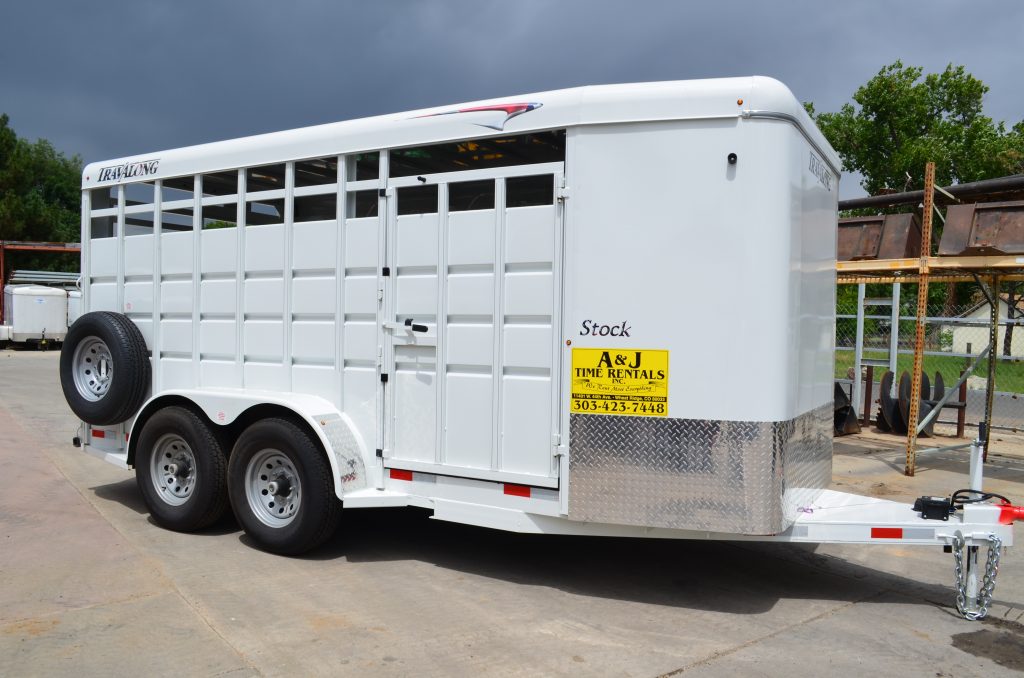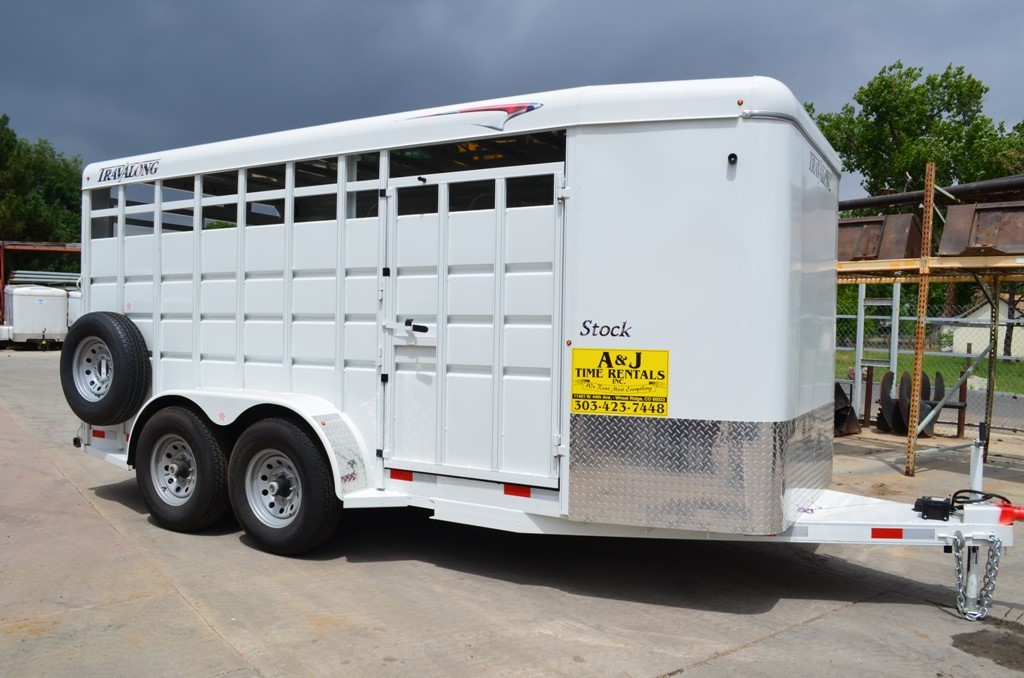/GettyImages-1575079341-5c6c86eb46e0fb0001d046c1.jpg)
Introduction to Horse Trailers
A horse trailer is a specialized type of trailer designed to transport horses. It provides a safe and comfortable environment for horses during transportation. Horse trailers come in various sizes and designs to accommodate different numbers of horses and their specific needs. Whether you are a horse owner, trainer, or breeder, having a reliable horse trailer is essential for convenient and secure transportation of your horses.
:max_bytes(150000):strip_icc()/GettyImages-1575079341-5c6c86eb46e0fb0001d046c1.jpg)
Types of Horse Trailers
There are several types of horse trailers available in the market, each designed for specific purposes and preferences. Here are some common types:
1. Straight Load Horse Trailers
Straight load horse trailers are the most traditional and common type. They have a straight configuration where horses are loaded and unloaded from the rear. This type allows horses to face forward during transportation, which is generally preferred by many horses.
/tagalongtrailer-56a4dd0b5f9b58b7d0d99288.jpg)
2. Gooseneck Horse Trailers
Gooseneck horse trailers are designed to be towed by a pickup truck with a specialized hitch located in the bed of the truck. These trailers provide added stability and better weight distribution compared to bumper-pull trailers. They are popular among horse owners who transport multiple horses or require additional living quarters for extended trips.

3. Bumper-Pull Horse Trailers
Bumper-pull horse trailers are towed by a hitch connected to the bumper of a vehicle. They are lighter and usually more affordable compared to gooseneck trailers. Bumper-pull trailers are suitable for transporting one to three horses and are commonly used by individual horse owners or small-scale operations.
Key Features of Horse Trailers
Horse trailers are equipped with various features to ensure the safety and comfort of the horses being transported. Some key features to consider when choosing a horse trailer include:
1. Ventilation
Proper ventilation is crucial to maintain a comfortable environment inside the trailer. Horse trailers often have windows and vents strategically placed to allow fresh air circulation and prevent heat build-up during transportation.

2. Flooring
The flooring of a horse trailer should be sturdy, slip-resistant, and easy to clean. Common flooring materials include rubber mats or specialized non-slip coatings to ensure the horses have good footing and reduce the risk of injuries during transport.
3. Dividers and Stalls
Horse trailers are typically divided into separate stalls to prevent horses from moving around too much during transportation. Dividers may be padded to provide additional protection and minimize the risk of injuries caused by contact with trailer walls or other horses.
Benefits of Using Horse Trailers
Using a horse trailer offers several benefits for horse owners, trainers, and breeders:
1. Convenience
Horse trailers allow you to transport your horses conveniently to various locations, such as shows, competitions, or veterinary appointments. You have the flexibility to travel at your own pace and schedule without relying on third-party transportation services.

2. Safety
Horse trailers are designed with safety in mind. They provide secure containment for horses during transportation, reducing the risk of injuries caused by sudden stops, turns, or road hazards. Properly designed trailers also prevent horses from injuring themselves or each other during transit.
3. Comfort
Horse trailers are equipped with features that aim to provide a comfortable journey for the horses. They offer ample space for horses to stand, lie down, and move around comfortably. Good ventilation and appropriate flooring help maintain a pleasant environment for the horses during transportation.
Maintenance and Safety Tips
To ensure the longevity and safety of your horse trailer, here are some essential maintenance and safety tips:
1. Regular Inspections
Perform regular inspections of your horse trailer, checking for any signs of wear and tear, loose parts, or damage. Pay close attention to the tires, brakes, lights, and hitch to ensure they are in proper working condition.

2. Cleaning and Sanitization
Regularly clean the interior of your horse trailer to remove dirt, debris, and manure. Proper sanitization helps prevent the spread of pathogens and keeps the trailer hygienic for your horses.
3. Safe Loading and Unloading
Take the necessary precautions when loading and unloading your horses to prevent accidents or injuries. Make sure the loading area is well-lit, and use safe and suitable equipment, such as lead ropes and butt bars, to guide and secure the horses.
Conclusion
A horse trailer is an essential investment for horse owners, trainers, and breeders who need to transport their horses safely and conveniently. By considering the types, features, and maintenance tips discussed in this article, you can make an informed decision when choosing a horse trailer that meets your specific needs. Ensure the well-being of your horses during transportation and enjoy the freedom to travel to various equestrian events with ease.